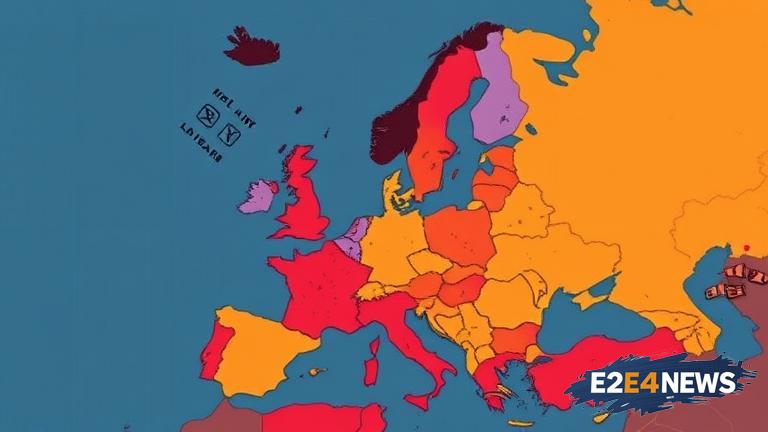The European Union has been at the forefront of regulating big tech companies, and their latest efforts are not going unnoticed. In recent years, the EU has implemented several laws and regulations aimed at curbing the power of big tech companies and protecting user data. One of the most notable laws is the General Data Protection Regulation (GDPR), which gives users more control over their personal data and imposes strict rules on companies that collect and process it. The GDPR has been in effect since 2018 and has already had a significant impact on the way big tech companies operate in the EU. Another law that has been making waves is the Digital Services Act (DSA), which aims to regulate online platforms and hold them accountable for the content they host. The DSA has been praised for its efforts to reduce the spread of misinformation and promote transparency online. However, not everyone is happy with the EU’s efforts to regulate big tech. US President Donald Trump has been vocal about his opposition to the EU’s laws, claiming that they are unfair and target American companies. Despite the criticism, the EU remains committed to its mission to regulate big tech and protect user rights. The EU’s efforts have also inspired other countries to follow suit, with several nations around the world implementing their own laws and regulations to curb the power of big tech. The impact of the EU’s laws on big tech companies has been significant, with many companies being forced to change their business practices and comply with the new regulations. Some companies have even been fined for non-compliance, with Google being fined a record $5 billion for violating EU antitrust laws. The EU’s laws have also had a significant impact on the way big tech companies collect and process user data. Many companies have been forced to introduce new data protection policies and give users more control over their personal data. The EU’s efforts to regulate big tech have also led to an increase in transparency and accountability online. The DSA, for example, requires online platforms to be more transparent about their content moderation policies and to provide users with more information about the data they collect. The EU’s laws have also had a significant impact on the way big tech companies approach online advertising. Many companies have been forced to introduce new advertising policies and give users more control over the ads they see. The EU’s efforts to regulate big tech have also led to an increase in innovation and competition online. With the introduction of new laws and regulations, many new companies have been able to enter the market and compete with the big tech giants. The EU’s laws have also had a significant impact on the way big tech companies approach artificial intelligence and machine learning. Many companies have been forced to introduce new policies and guidelines for the development and use of AI and machine learning technologies. The EU’s efforts to regulate big tech have also led to an increase in public awareness and debate about the impact of big tech on society. Many people are now more aware of the potential risks and benefits of big tech and are calling for greater regulation and oversight. The EU’s laws have also had a significant impact on the way big tech companies approach cybersecurity. Many companies have been forced to introduce new security measures and give users more control over their personal data. The EU’s efforts to regulate big tech have also led to an increase in international cooperation and collaboration. Many countries around the world are now working together to develop common standards and regulations for big tech companies. The EU’s laws have also had a significant impact on the way big tech companies approach online safety. Many companies have been forced to introduce new safety measures and give users more control over their personal data. The EU’s efforts to regulate big tech have also led to an increase in public trust and confidence in the EU’s ability to regulate big tech. Many people now believe that the EU is taking the right approach to regulating big tech and that its laws and regulations are effective in protecting user rights. The EU’s laws have also had a significant impact on the way big tech companies approach online governance. Many companies have been forced to introduce new governance structures and give users more control over their personal data. The EU’s efforts to regulate big tech have also led to an increase in innovation and entrepreneurship online. With the introduction of new laws and regulations, many new companies have been able to enter the market and compete with the big tech giants. The EU’s laws have also had a significant impact on the way big tech companies approach online education and digital literacy. Many companies have been forced to introduce new education and training programs and give users more control over their personal data. The EU’s efforts to regulate big tech have also led to an increase in public awareness and debate about the impact of big tech on education and digital literacy. Many people are now more aware of the potential risks and benefits of big tech and are calling for greater regulation and oversight.
